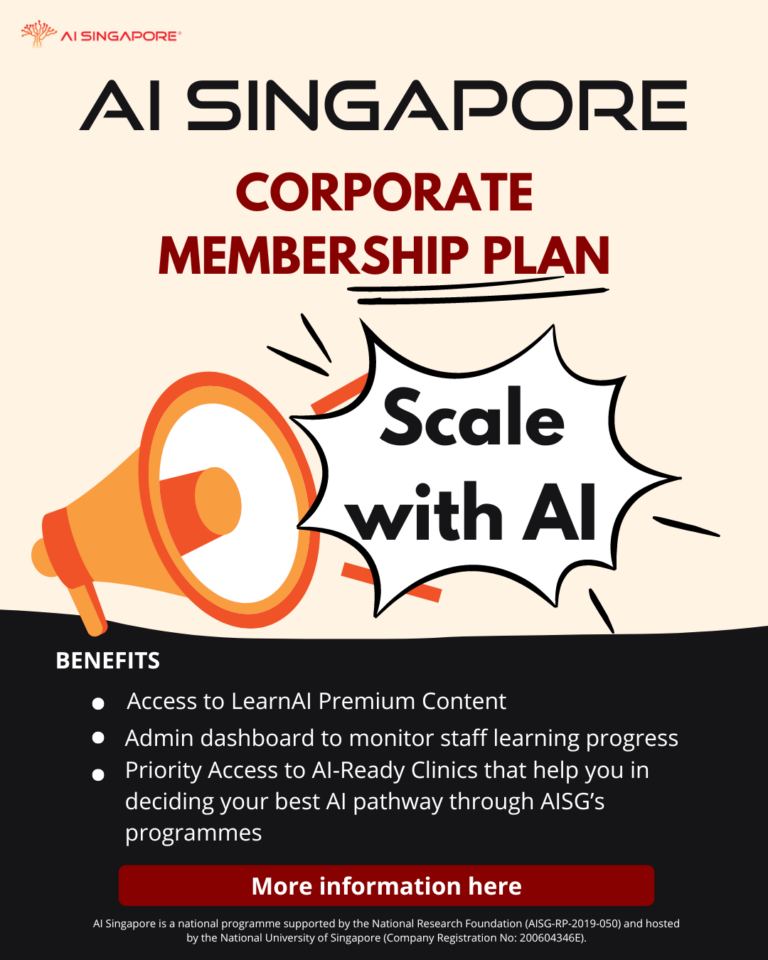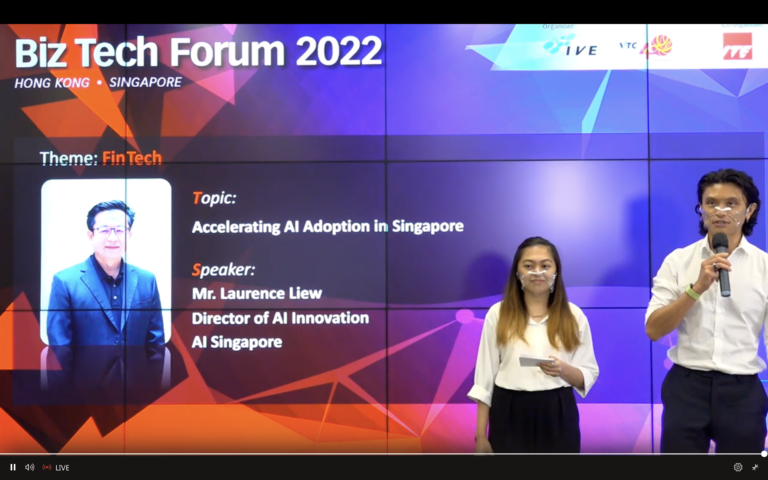With user profiling algorithms and intervention features in place, the AI-assisted 3H Care (A3C) system is set to go from proposal to prototype.
In June 2018, the first in a series of AI Grand Challenges was launched to explore how AI technologies and innovations can help solve important problems faced by Singapore and the world. The focus was on healthcare, and the challenge was on how AI can be used to help primary care teams stop or slow disease progression and complication development in 3H (hyperlipidaemia, hyperglycaemia, hypertension) patients by 20 percent in five years.
One of the awarded research proposals, led by a team of researchers from NTU, NHG and SMU, was for an end-to-end 3H primary care model that is able to accurately identify a large number of 3H and pre-3H patients as early as possible and adaptively provide personal as well as group-based interventions through gamification to reverse or slow disease progression and complication development.
AI-assisted 3H Care (A3C)
System architecture of A3C
The system, AI-assisted 3H Care (A3C) comprises nine modules covering three key areas of 3H management:
1. Assessment
- Unobtrusive Sensing collects users’ behavioural and environmental data
- Health Screening Kiosk enables users to conduct 3H-related self-assessment at clinics, hospitals and community centres
- Health Profiling analyses the users’ 3H-related health status based on the longitudinally collected data, complemented with medical data
- Health Behaviour Prediction captures the users’ knowledge, attitude and confidence in 3H management
2. Intervention
- Personalised Lifestyle Recommendation promotes healthy and active lifestyles
- Multi-morbidity Management supports healthcare professionals in preparing or adjusting personalised treatment plans
- Gamified Performance Dashboard provides group-based interventions in the form of online competitions
- Community Activity Kiosk facilitates 3H-related knowledge sharing and exercise games
3. Interaction
- Virtual Health Coach, an assistive agent embodied as a health coach avatar, interacts with users via their mobile phones and links them up for assessments and interventions

Benefits to Primary Care Teams
The continuous monitoring and assessment capabilities of A3C enable medical professionals to start interventions early to effectively slow down the progression of the chronic diseases and reduce associated complications.
Apart from reporting on the status of patients with chronic diseases, the system also alerts medical professionals to early signs of pre-chronic diseases based on behavioural patterns, health symptoms and other non-medical factors.

Benefits to End-users
With A3C, users can receive personalised health management recommendations based on information about their daily activities, health conditions and surrounding environment as well as available medical guidelines and best practices.
Gamification, with peer support and the element of competition, provides incentive for users to adhere to daily or weekly interventions.
12-month report card
Over the past 12 months, with the system architecture design in place, significant progress has been made in the development of A3C.
User profiling algorithms
Smart user profiling algorithms have been developed to identify 3H and pre-3H candidates, analysing their status and risk based on data collected from the assessment modules. This includes information on behavioural patterns, health symptoms and other data collected daily through sensing technologies and devices such as smart watches. Being evaluated on selected datasets, the algorithms can be extended to cases where comprehensive medical data is not available.
Intervention with gamification
Individual- and group-based AI-assisted intervention methods for 3H have been developed. For example, the team designed a game to transform users’ daily achievements into in-game rewards, incentivising the users to follow the given recommendations and improving intervention adherence rates
 Image shows a group-based game being showcased to residents at a local community centre
Image shows a group-based game being showcased to residents at a local community centre
(Note: this game is under recontextualization and refinement for the A3C system)
Next Steps
Of the nine A3C modules, four have been completed and are ready to be tested in a small-scale pilot study involving 300 participants. They include the Virtual Health Coach, Unobtrusive Sensing, Personalised Lifestyle Recommendation and Gamified Performance Dashboard.
Based on the feedback, the plan is to refine the system and carry out a large-scale study involving 1,000 participants.
Meanwhile, the team is continuing its work on the remaining five modules to develop the full-fledged A3C system.
About the Team
- Lead Principal Investigator: Professor Miao Chunyan (NTU)
- Co-Principal Investigators:
- Associate Professor Chin Jing Jih (NHG/NTU)
- Dr Wong Kirk Chuan (NHG)
- Associate Professor Zhu Feida (SMU)
- Professor Cyril Leung (NTU/UBC)
- Professor Tan Ah Hwee (NTU/SMU)
- Professor Guan Cuntai (NTU)
- Associate Professor Chng Eng Siong (NTU)
- Assistant Professor Yu Han (NTU)
- Dr Shen Zhiqi (NTU)
- Host Institution: Nanyang Technological University (NTU)
- Partner Institution(s): National Healthcare Group (NHG), Singapore Management University (SMU)
Since the start of the project, the team has published four journal and four conference papers in the top-10 percent publication list approved by the National Research Foundation, and also received the Innovative Applications of AI Award, “FedVision: An online visual object detection platform powered by federated learning”, from AAAI at the IAAI’20 conference.
About the AI in Health Grand Challenge
The AI in Health Grand Challenge Program is a 5-year, 2-staged program with a total funding quantum of $35 million. Multidisciplinary teams and consortia of academics, researchers, scientists, clinicians, clinician scientists, engineers, and other professionals in public-private partnerships are encouraged to address the Challenge. AI Singapore, together with an International Review Panel, selected three projects to be awarded Stage 1 funding of $5million per project for the first 2 years. The three projects aim to address the Challenge through novel and innovative ways of developing and applying AI technologies and systems through the continuum of care – from personal wellness monitoring and behavioural change, to community care and management, clinical and tertiary care with more accurate diagnosis and personalized treatments, empowering the patients, caregivers, clinicians at different settings and stages of 3H care.
For more details on the awardees, please visit https://ourmainwebsitewww.kinsta.cloud/grand-challenges/health/
Author
-
 Abigail Toh
Abigail Toh
Abigail leads the marcom efforts for AISG.






